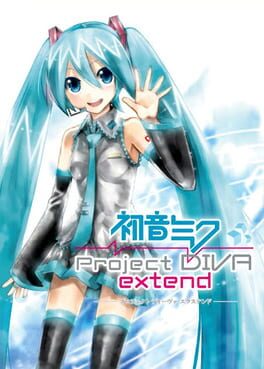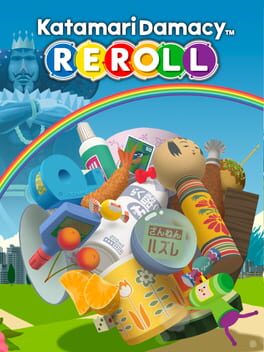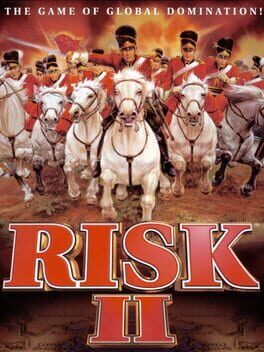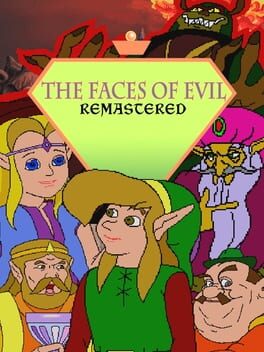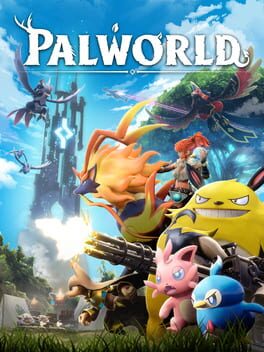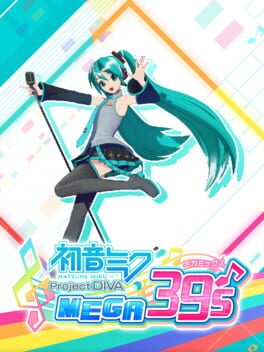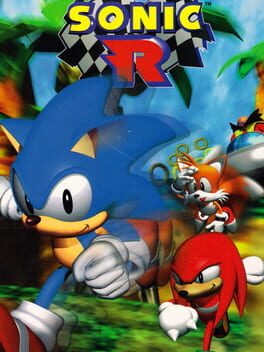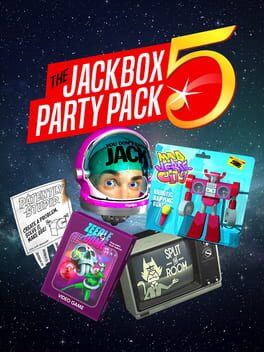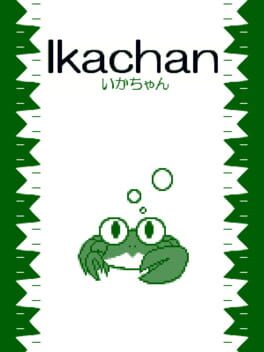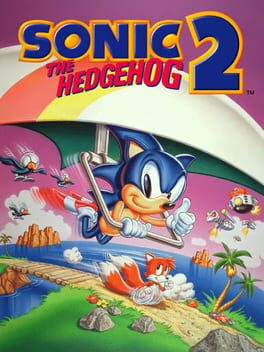DrVectrex
21 reviews liked by DrVectrex
there's something that should be said more often about "simpler" and "worse" and "outdated" games are sometimes more enjoyable than MORE. with every new generation we see a bigger push for games to have the maximum amount of content and graphics and replay value and hours and blah blah blah and while i'd NEVER go as far as to say the later project diva entries are even remotely comparable to ubisoft bloatware or some shit... i can't help but love how small project diva extend is. the song list is shorter (more intentional, perhaps) and therefore i feel less intimidated wanting to beat every track on every mode. the ui is low-res psp chunkadunk. the master-every-track format makes a little more sense on a psp given you can just whip the game out on the go rather than having to dedicate time to sit down and grind on a ps3/4/pc. the button patterns have to try harder to be interesting by nature of having less screen space and possible inputs. the videos for the songs have a low-poly diorama type of vibe and are much simpler than later entries which i find cute and appealing. i'm happy just watching miku do little dances, i mean c'mon. i also unlocked my favorite costumes and songs early on which colored my opinion positively. i think the psp has A Very Unique Vibe and this game exemplifies it hella goodly.
plus there's a sonic outfit.
plus there's a sonic outfit.
i'm going to be incredibly harsh here and say that this is a remaster that does not need to exist. the graphics look more washed out and lose that sharp style that original had. more damningly, the game somehow runs worse on the PS4 than it does on PS2 and will regularly get very bad slowdown around the baseball field near shopping street. it adds no qol features that the original could've used (i.e. the ability to restart a level either from pausing mid-level or retrying at the results screen), no extra content that the original didn't already have, and it only offers the japanese voice acting with no option for the iconic english voice acting (ik this part is contentious but there really is no reason it couldn't have at least been something you could toggle). i hate to be the fun police because a lot of people got introduced to this game from this remaster, but there really is no actual reason to play this over the original, especially considering how most microwaves can emulate PS2 games nowadays. i don't recommend this remaster for anyone uninitiated to the game and i don't recommend this remaster for any fans of the original looking for either new content or to revisit a classic, so it's a game for an audience of no one in my mind.
i want to be clear that this rating isn't necessarily reflective of the whole package; even with hiccups, this is katamari damacy. it takes more than slowdown to negate the joy of saying "C'MERE BITCH" and rolling up a terrified person into your katamari to then be rewarded with their screams of fear and agony. this rating is more an assessment of what reroll does (or does not do, in this case) to differentiate itself meaningfully from just playing the original. why pay money for this game when you can emulate the original and get the better and (imo) more essential experience? there's nothing inherently wrong with playing this over the original, but i would be completely unable to make a pitch for it. that's what makes it such a failure to me.
i want to be clear that this rating isn't necessarily reflective of the whole package; even with hiccups, this is katamari damacy. it takes more than slowdown to negate the joy of saying "C'MERE BITCH" and rolling up a terrified person into your katamari to then be rewarded with their screams of fear and agony. this rating is more an assessment of what reroll does (or does not do, in this case) to differentiate itself meaningfully from just playing the original. why pay money for this game when you can emulate the original and get the better and (imo) more essential experience? there's nothing inherently wrong with playing this over the original, but i would be completely unable to make a pitch for it. that's what makes it such a failure to me.
Risk II
2000
Palworld
2024
I'm a sinner for early access survival games. I had fun in Ark but that's something I couldn't recommend to anyone in good conscience. This game is equally time wasting but at least twice as good. There are legitimate criticisms you could have about the "Pal" designs in this game where's it pretty clear they were too close to pokemon. I swear to god I saw a meganium and gyrados in this game. However, anyone calling them an asset flip doesn't understand what an asset flip is, and Nintendo, one of the most litigious game companies out there still hasn't sued really does say a lot. The idea of using your pokemon as base workers instead of just as tools like ark does is a considerable upgrade. There's also a lot more pokemon than there are dinosaurs. The map design is pretty generic. The combat though can be a bit fucked. Whether thats due to lag or to dumbass decisions is unknown. For example, many moves are piercing which means they'll also pierce the pokemon you're riding and hit you. Armor in this game is also fake. It breaks basically instantly and barely gives you the HP to compensate. You are still in high danger if you ever want to be an active participant and you will be because the aggro will randomly switch from your mon to your player character. You also can't control the mon unless you're riding it. The pokemon will just randomly use one of 3 moves you assign it based on cooldown. So the combat isn't particularly fun, I mostly played to get stronger pokemon and expand my base. It's a very good game to turn your brain off to though.
TLDR Good brain off survival game. If you liked Ark this is much better, play this instead.
TLDR Good brain off survival game. If you liked Ark this is much better, play this instead.
Palworld
2024
Sonic R
1998
In many ways the work of a critic is easy. They risk very little, yet enjoy a position over those who offer up their work and their selves to our judgement.
Some thrive on negative criticism, which is fun to write and to read.
But, the bitter truth critics must face is that, in the grand scheme of things, the average piece of junk is probably more meaningful than the criticism designating it so. But there are times when a critic truly risks something, and that is in the discovery and defense of the weird.
The world is often unkind to new and strange ideas. The strange needs friends.
Last week I experienced something hated upon, an abnormal game made in an unconventional development time. To say that both the game and its maker have challenged my preconceptions about video games, is a gross understatement-- they have rocked me to my core.
In the past I have made no secret of my respect for Sumo Digital’s famous game: “Sonic & SEGA All Stars Racing Transformed”. But I realize only now do I truly understand what Traveller's Takes meant. Not everyone can become a great developer, but a great developer can come from anywhere.
It is difficult to imagine more humble origins than those of the mixed now cooking at SEGA who is, in this critic’s opinion, nothing less than the weirdest game company in the world.
I will be returning to Sonic R soon, hungry for more.
short ass game lmao 😂😂😂
Some thrive on negative criticism, which is fun to write and to read.
But, the bitter truth critics must face is that, in the grand scheme of things, the average piece of junk is probably more meaningful than the criticism designating it so. But there are times when a critic truly risks something, and that is in the discovery and defense of the weird.
The world is often unkind to new and strange ideas. The strange needs friends.
Last week I experienced something hated upon, an abnormal game made in an unconventional development time. To say that both the game and its maker have challenged my preconceptions about video games, is a gross understatement-- they have rocked me to my core.
In the past I have made no secret of my respect for Sumo Digital’s famous game: “Sonic & SEGA All Stars Racing Transformed”. But I realize only now do I truly understand what Traveller's Takes meant. Not everyone can become a great developer, but a great developer can come from anywhere.
It is difficult to imagine more humble origins than those of the mixed now cooking at SEGA who is, in this critic’s opinion, nothing less than the weirdest game company in the world.
I will be returning to Sonic R soon, hungry for more.
short ass game lmao 😂😂😂
Ikachan
2000
Oh how I love to squid around, showing Ironhead who's the boss of this swim. It's not much larger than a single part of Cave Story, but this little game has an identity beyond just demoing Daisuke "Pixel" Amaya's future works. (Let's also deem this a doujin classic, just like its successor which is so often only called an indie game.) Our unlikely hero has no grim backstory or workmanlike mentality, just the earnestness and intuition to do what's right for this troubled underseas enclave. Jetting around caverns, helping out the residents, and eventually rescuing them from certain doom makes for one exciting hour-long adventure. It's like if Lunar Lander had a story, boss fights, cute characters, and an inimitable style that set Pixel apart from his peers. Squidlander, if you will! Just don't waste your time on the 3DS port, let alone the money Nicalis doesn't deserve.
I'll spare you any more puns and set the scene. The turn of the millennium saw rapid flux in Japan's doujin game community. Widespread adoption of Windows and the Internet meant the old BBS days were fading. Anyone could hop onto Vector.jp, Enterbrain, or another host site to spread their work, get feedback, and maybe get a booth at Comiket or some other big event. All but the most prominent circles were moving on from the PC-98's strict limits in pursuit of new technologies, online multiplayer, and even more niche stories to tell. The conventionality of prior years, a need to design your game for easy transmittal across pricey phone minutes, gave way to the World Wide Web's promises of creative freedom. Only later did programmers, artists, musicians, and designers the world over realize how little had changed. This brief period of Y2K WWW optimism hadn't yet given way to paywalls, community siloing, or the reality distortion fields emanating from social media today. Coteries talked, created, and shared with each other like there was no tomorrow.
Within this primordial soup of an always-online doujin world came Ikachan, hatched out of Pixel's early efforts to make what would become Cave Story. By his own recollection, that better known title started from one of his roommates teaching the future indie legend some game development basics, sometime in 1999. The existence of even earlier micro-games like JiL JiL from 1997 puts this story in question, but it's true that Pixel's earliest software was much smaller in scope and ambition. Pixel's aims of making a multi-hour, consummate experience wouldn't show until this plucky underwater kid graced the Japanese web, using a bespoke engine and music format to massively compress its filesize for distribution. He's mentioned in multiple interviews how keeping these games small, accessible, and ideal for replays has always been the priority, something I think Ikachan exemplifies better than its spiritual successor.
Fittingly, your squid-ling journey begins in an isolated nadir of a small cave system, accompanied only by a smaller starfish fellow trapped behind sponge. This section introduces you to the game's conceit: you can only float and propel left, right, or up, with gravity in effect at all times. Cave Story starts out very similarly, forcing you to learn the base mechanics or face a swift and humiliating demise. I shuddered at the sight of spikes this early on, knowing how fatal they are at the start of the 2004 game, but Pixel's too kind here, letting you survive just one puncture. It's not even a couple minutes or so before you reach the first of many cute urchin friends, each sharing small tidbits about the setting and player goals. And the story tension's made clear right here as you learn about dangerous earthquakes threatening to collapse the whole place. Time's running out to stop the tremors or simply escape, and the player's only just wormed their way out of a craggy prison cell!
Ikachan doesn't deal with time limits, though, nor is it ever what I'd call challenging. Maybe that's because I'm used to the classic gravity platformers that inspired this one, but it's only a matter of patience to navigate these tunnels and bop enemies with your soon acquired mantle. Attacking is never that easy, even once you acquire the jet propulsion ability. Enemies have simple but somewhat jarring movement patterns one must track in order to time floats or boosts, and side attacks simply aren't possible until you get the Capacitor after the first of two bosses. The item & ability progression here is quite satisfying due to said simplicity, at least until after you defeat Ironhead. More than just bopping one or two starfish at a time with easy ways to dodge them, the iconic head honcho requires timing to reliably hit his underside and avoid those charges. Being such a short, restrained design exercise of a project, Ikachan kind of just ends after the big fight, with no new abilities or areas to test your skills. It's a bit of a letdown since the escape sequence could have benefited from even a light 3-to-5 minute timer, just to put more pressure on players.
Pixel compensates for these scant few mini-dungeons and set-pieces with a quality-over-quantity approach. Every critter you meet is memorable, either through appearance or interactions. Neither the PC freeware or 3DS commercial translations feel all that polished like Aeon Genesis' work on Cave Story, but they succeed at conveying the blasé dialogues and economic storytelling you'd expect from this creator. What small areas you dive through, and the mini obstacles you must overcome feel good to surpass. For all I've nitpicked about the game's ending, it's fun to do a kind of victory lap around this netherworld, rescuing each NPC before rocketing off into space, wondering where the hell they're going to end up. And Ikachan has a bit of worldbuilding mystery, too; why were the protagonist and Ben trapped down in the depths to begin with? Were either of them originally from the above world? What kind of bony-finned dumbass would request you deliver them raw blowfish, knowing it'd be poisoned?!
Of course, we can't forget how sumptuous the game looks and sounds even today. This was the debut work featuring Pixel's, uh, highly pixelated and textured artwork, and his catchy PC Engine-like chiptunes in turn. At no point was I ever confused about where to go, a function of a highly readable tileset and use of negative space in these environments. Wise coloring and immediately recognizable character silhouettes gave Ikachan the identity it needed to stand out amidst other, more detailed doujin games of the time. I've always considered this and Cave Story more than just retro throwbacks in both style and substance. They're two of the best examples of minimalist 2D dot visuals I know, and just as impressively coded for efficiency. Performance isn't super smooth due to the 50 FPS limit, but frames never drop and the controls always feel as low-latency as they should. So, despite its rough origins, the game's engine and presentation has more than survived the perils of Windows' evolution.
I wish I could be as glowing and partial to the 3DS version, though, which I acquired through Totally Legal Means and used for a quick replay. Nicalis has a history of making changes and additions to Pixel's work both welcome and dubious. In this case, I'm torn on the level design alterations, which range from adding more rooms to house new enemy types (none of which are much different from the originals) to straight-up padding out runtime. A couple of the routes players take to upgrades are now a bit too long for comfort, but there's a cool change to the Pinky rescue area where you now have to navigate a partially-hidden rock maze. Some nice new details like the shiny claws on crabs help too, yet I can't help but feel all of these changes are either too slight to matter or too irritating to ignore.
Worse still is the new localization, which interferes with the more humble themes and characterization of the original. See, Ikachan was never that much of a hero, nor destined to save the village from destruction. We start from the bottom and then, through our actions and honesty, do the right thing. But the revised character lines point to Nicalis' interpretation of the story, where Pinky becomes a Lisa Simpson type upon and Ironhead's no longer as hostile as he ought to be. The original English translation presents more fitting voices for each NPC and distributes the plot details better across the playthrough. Here it's more haphazardly presented, with Pinky's dad being much more mean to you for no good reason, or the upper tunnels sentry no longer being a pathetic bully like the pearl carrier back below. And there's still no added, meaningful new bits of plot or development here that would justify these liberal rewrites.
The 3DS port is otherwise very faithful, perhaps too much to justify the $5 pricetag. But that's a problem Nicalis faces with Cave Story, too, except they very likely brought ikachan to the eShop as a quick cash grab most of all. No extra sections, bosses, or challenge modes sends a clear sign of "we think you're dumb enough to buy this freeware". Enough's been said about Tyrone Rodriguez's downfall into exploiting Pixel's games and prestige for his benefit, and I hope everyone else who worked on this release got paid properly (or are eventually compensated despite the company president's asshole actions). I still hope this romp gets a proper custom engine or decompilation in the near-future. A level editor exists, and I presume there's gotta be at least one mod out there, but so much oxygen goes to a certain later title that everyone's kind of slept on this one's potential. Well, be the change you want to see in this world, I suppose. This wouldn't be my first time modding a fan favorite game just for my own pleasure.
Until then, Ikachan is a fun, unassuming Metroidvania channeling the better parts of the genre and its legacy. So many doujin and indie works have long since achieved much greater things, yet this would have been my favorite Flash-/Shockwave-ish PC game if I'd stumbled upon it in my childhood. Most importantly, this was something of a missing link between the quaint J-PC doujin period and the increasingly cross-regional, indie-adjacent paradigm that circles and creators now work in. Without this and especially Pixel's next game, so much pomp and circumstance around the revival of the bedroom coder dream may not have worked out as strongly. That's enough reason to try this ditty! It's definitely a case of untapped potential, justifiably viewed as a taste of Pixel's games to come, yet I can boot this up anytime and come away with a smile.
I'll spare you any more puns and set the scene. The turn of the millennium saw rapid flux in Japan's doujin game community. Widespread adoption of Windows and the Internet meant the old BBS days were fading. Anyone could hop onto Vector.jp, Enterbrain, or another host site to spread their work, get feedback, and maybe get a booth at Comiket or some other big event. All but the most prominent circles were moving on from the PC-98's strict limits in pursuit of new technologies, online multiplayer, and even more niche stories to tell. The conventionality of prior years, a need to design your game for easy transmittal across pricey phone minutes, gave way to the World Wide Web's promises of creative freedom. Only later did programmers, artists, musicians, and designers the world over realize how little had changed. This brief period of Y2K WWW optimism hadn't yet given way to paywalls, community siloing, or the reality distortion fields emanating from social media today. Coteries talked, created, and shared with each other like there was no tomorrow.
Within this primordial soup of an always-online doujin world came Ikachan, hatched out of Pixel's early efforts to make what would become Cave Story. By his own recollection, that better known title started from one of his roommates teaching the future indie legend some game development basics, sometime in 1999. The existence of even earlier micro-games like JiL JiL from 1997 puts this story in question, but it's true that Pixel's earliest software was much smaller in scope and ambition. Pixel's aims of making a multi-hour, consummate experience wouldn't show until this plucky underwater kid graced the Japanese web, using a bespoke engine and music format to massively compress its filesize for distribution. He's mentioned in multiple interviews how keeping these games small, accessible, and ideal for replays has always been the priority, something I think Ikachan exemplifies better than its spiritual successor.
Fittingly, your squid-ling journey begins in an isolated nadir of a small cave system, accompanied only by a smaller starfish fellow trapped behind sponge. This section introduces you to the game's conceit: you can only float and propel left, right, or up, with gravity in effect at all times. Cave Story starts out very similarly, forcing you to learn the base mechanics or face a swift and humiliating demise. I shuddered at the sight of spikes this early on, knowing how fatal they are at the start of the 2004 game, but Pixel's too kind here, letting you survive just one puncture. It's not even a couple minutes or so before you reach the first of many cute urchin friends, each sharing small tidbits about the setting and player goals. And the story tension's made clear right here as you learn about dangerous earthquakes threatening to collapse the whole place. Time's running out to stop the tremors or simply escape, and the player's only just wormed their way out of a craggy prison cell!
Ikachan doesn't deal with time limits, though, nor is it ever what I'd call challenging. Maybe that's because I'm used to the classic gravity platformers that inspired this one, but it's only a matter of patience to navigate these tunnels and bop enemies with your soon acquired mantle. Attacking is never that easy, even once you acquire the jet propulsion ability. Enemies have simple but somewhat jarring movement patterns one must track in order to time floats or boosts, and side attacks simply aren't possible until you get the Capacitor after the first of two bosses. The item & ability progression here is quite satisfying due to said simplicity, at least until after you defeat Ironhead. More than just bopping one or two starfish at a time with easy ways to dodge them, the iconic head honcho requires timing to reliably hit his underside and avoid those charges. Being such a short, restrained design exercise of a project, Ikachan kind of just ends after the big fight, with no new abilities or areas to test your skills. It's a bit of a letdown since the escape sequence could have benefited from even a light 3-to-5 minute timer, just to put more pressure on players.
Pixel compensates for these scant few mini-dungeons and set-pieces with a quality-over-quantity approach. Every critter you meet is memorable, either through appearance or interactions. Neither the PC freeware or 3DS commercial translations feel all that polished like Aeon Genesis' work on Cave Story, but they succeed at conveying the blasé dialogues and economic storytelling you'd expect from this creator. What small areas you dive through, and the mini obstacles you must overcome feel good to surpass. For all I've nitpicked about the game's ending, it's fun to do a kind of victory lap around this netherworld, rescuing each NPC before rocketing off into space, wondering where the hell they're going to end up. And Ikachan has a bit of worldbuilding mystery, too; why were the protagonist and Ben trapped down in the depths to begin with? Were either of them originally from the above world? What kind of bony-finned dumbass would request you deliver them raw blowfish, knowing it'd be poisoned?!
Of course, we can't forget how sumptuous the game looks and sounds even today. This was the debut work featuring Pixel's, uh, highly pixelated and textured artwork, and his catchy PC Engine-like chiptunes in turn. At no point was I ever confused about where to go, a function of a highly readable tileset and use of negative space in these environments. Wise coloring and immediately recognizable character silhouettes gave Ikachan the identity it needed to stand out amidst other, more detailed doujin games of the time. I've always considered this and Cave Story more than just retro throwbacks in both style and substance. They're two of the best examples of minimalist 2D dot visuals I know, and just as impressively coded for efficiency. Performance isn't super smooth due to the 50 FPS limit, but frames never drop and the controls always feel as low-latency as they should. So, despite its rough origins, the game's engine and presentation has more than survived the perils of Windows' evolution.
I wish I could be as glowing and partial to the 3DS version, though, which I acquired through Totally Legal Means and used for a quick replay. Nicalis has a history of making changes and additions to Pixel's work both welcome and dubious. In this case, I'm torn on the level design alterations, which range from adding more rooms to house new enemy types (none of which are much different from the originals) to straight-up padding out runtime. A couple of the routes players take to upgrades are now a bit too long for comfort, but there's a cool change to the Pinky rescue area where you now have to navigate a partially-hidden rock maze. Some nice new details like the shiny claws on crabs help too, yet I can't help but feel all of these changes are either too slight to matter or too irritating to ignore.
Worse still is the new localization, which interferes with the more humble themes and characterization of the original. See, Ikachan was never that much of a hero, nor destined to save the village from destruction. We start from the bottom and then, through our actions and honesty, do the right thing. But the revised character lines point to Nicalis' interpretation of the story, where Pinky becomes a Lisa Simpson type upon and Ironhead's no longer as hostile as he ought to be. The original English translation presents more fitting voices for each NPC and distributes the plot details better across the playthrough. Here it's more haphazardly presented, with Pinky's dad being much more mean to you for no good reason, or the upper tunnels sentry no longer being a pathetic bully like the pearl carrier back below. And there's still no added, meaningful new bits of plot or development here that would justify these liberal rewrites.
The 3DS port is otherwise very faithful, perhaps too much to justify the $5 pricetag. But that's a problem Nicalis faces with Cave Story, too, except they very likely brought ikachan to the eShop as a quick cash grab most of all. No extra sections, bosses, or challenge modes sends a clear sign of "we think you're dumb enough to buy this freeware". Enough's been said about Tyrone Rodriguez's downfall into exploiting Pixel's games and prestige for his benefit, and I hope everyone else who worked on this release got paid properly (or are eventually compensated despite the company president's asshole actions). I still hope this romp gets a proper custom engine or decompilation in the near-future. A level editor exists, and I presume there's gotta be at least one mod out there, but so much oxygen goes to a certain later title that everyone's kind of slept on this one's potential. Well, be the change you want to see in this world, I suppose. This wouldn't be my first time modding a fan favorite game just for my own pleasure.
Until then, Ikachan is a fun, unassuming Metroidvania channeling the better parts of the genre and its legacy. So many doujin and indie works have long since achieved much greater things, yet this would have been my favorite Flash-/Shockwave-ish PC game if I'd stumbled upon it in my childhood. Most importantly, this was something of a missing link between the quaint J-PC doujin period and the increasingly cross-regional, indie-adjacent paradigm that circles and creators now work in. Without this and especially Pixel's next game, so much pomp and circumstance around the revival of the bedroom coder dream may not have worked out as strongly. That's enough reason to try this ditty! It's definitely a case of untapped potential, justifiably viewed as a taste of Pixel's games to come, yet I can boot this up anytime and come away with a smile.
